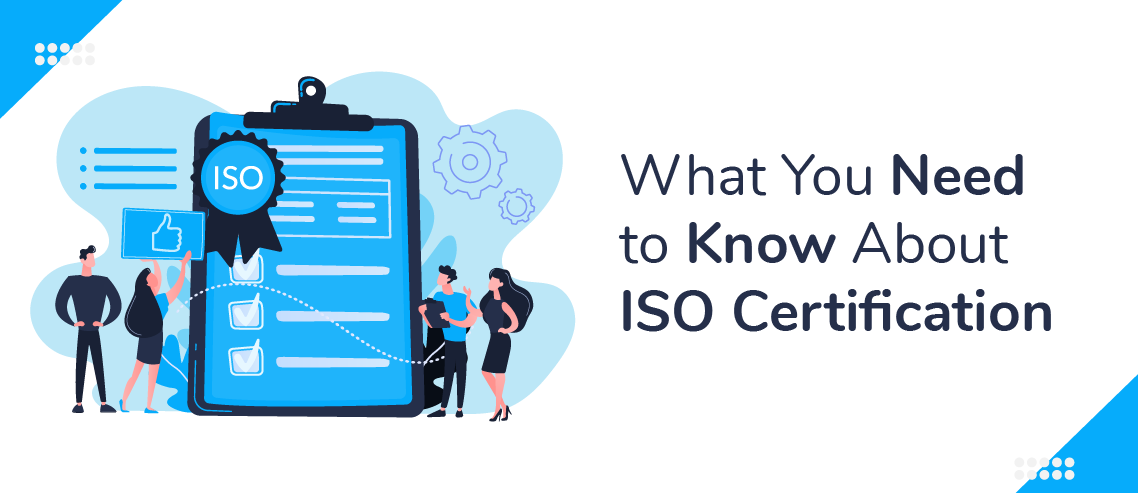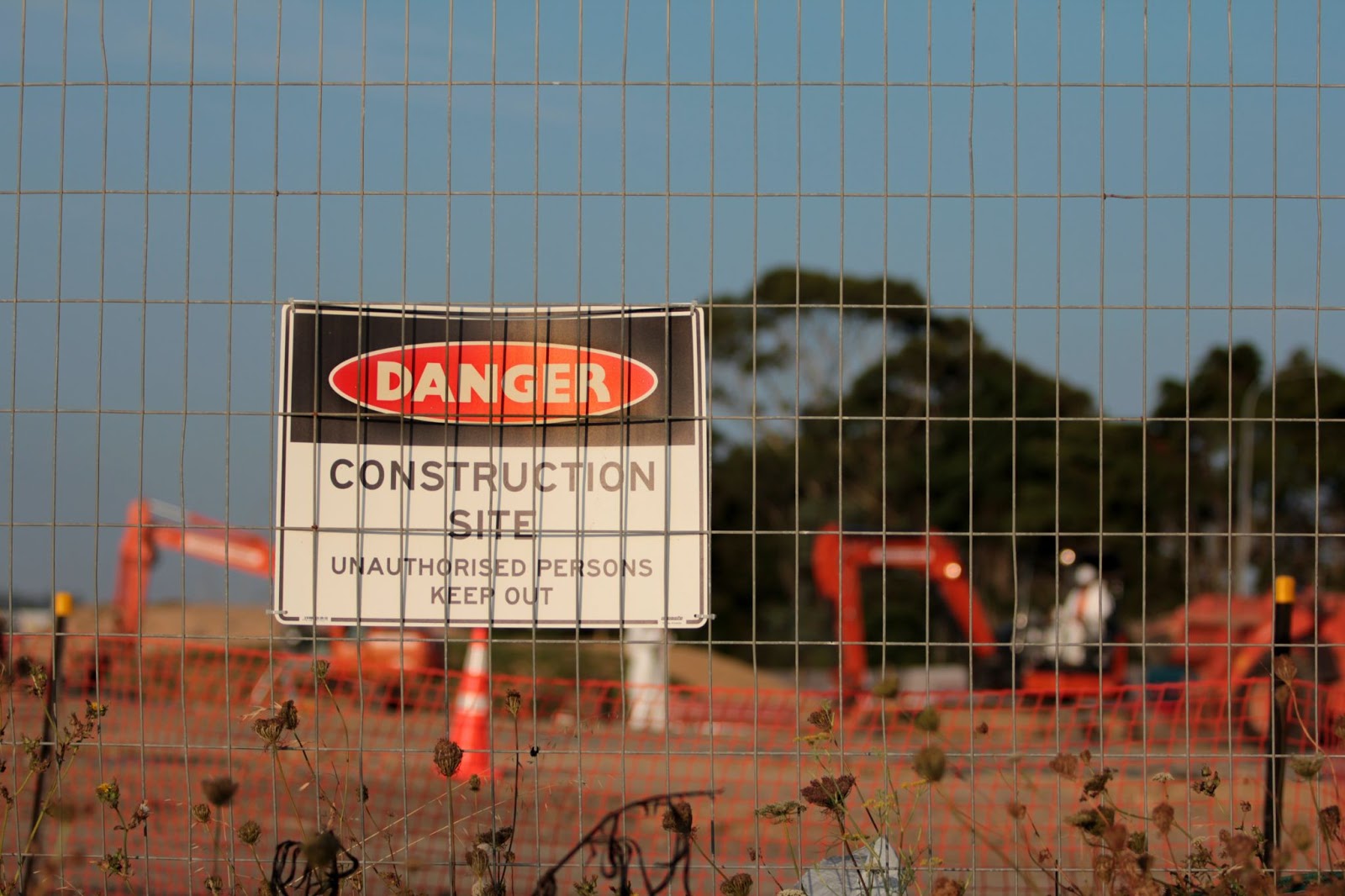Essential Information on ISO Certification for Small Construction Businesses in the U.S.

The International Organization for Standardization (ISO) provides your construction business with robust management systems. Gaining these certifications can benefit your company significantly, giving you the upper hand for tenders along with qualifications for government contracts. It creates many professional opportunities for your small business, but it can be tricky to know which ISO certification to focus on first. That’s why we’ve broken down the whole process, highlighting the management skills you need to use to kickstart this process.
What is ISO Certification?
An ISO certification confirms that a manufacturing process, service, document procedure, or management system meets all the global requirements for standardization and quality assurance.
ISO is an independent, non-governmental, international organization currently sitting with 165 national standards bodies. The organization brings experts together, sharing knowledge to improve international standards and providing solutions to world challenges.
It all began in 1946 in London with 65 delegates from 25 countries. By 1947 ISO officially came into existence with 67 technical committees. In 1951 the first ISO standard ISO/R 1:1951 was published. It focused on the standard reference temperature for geometrical product specification and verification. The temperature is fixed at 20°C. It has since evolved to the Geometrical Product Specifications of ISO 1:2016. By the seventies, the environment was high on the agenda as ISO introduced committees focusing on air quality and water quality, and in 1987 the ISO 9000 family was born. ISO 9001 has become one of the most well known and best-selling standards.
ISO Certifications Ideal For The Construction Industry
ISO certifications exist in many industries, ensuring consistency across the board. Each certificate focuses on different standards and criteria. In the construction world, ISO 9001, ISO 45001, and ISO 14001 are the most relevant.
ISO 9001
ISO 9001 is the world’s most recognized quality management system (QMS) standard. It’s a management system that enhances operational efficiency.
Most construction companies rely on subcontractors, but you need to work as one team. Implementing an ISO 9001 QMS ensures that suppliers and subcontractors are regularly monitored, providing you with an approved supplier list. By adopting the standard, your organization shows a commitment to top quality service levels and customer-focused objectives.
What does ISO 9001: 2015 mean?
If you’re researching ISO 9001, you’ll probably come across the full name; ISO 9001: 2015. The acronym ISO refers to the International Organization for Standardization. 9001 is the classification number for the standard, and 2015 refers to the version of the standard. 2015 is the fifth edition of ISO 9001, launched in September 2015, making it the most recent version.
The Benefits of ISO 9001
- Increased efficiency: By following the industry’s best practices, you’ll reduce costs and deliver quality.
- Increased revenue: Having the ISO 9001 certification allows you to bid for more projects, giving you the upper hand against your competitors. It shows potential clients that you value efficiency.
- Better customer satisfaction: The ISO 9001 standard encourages customer-focused processes to take precedence. By understanding your customer’s needs, you’ll increase trust in your project delivery.
- Improved supplier relationships: Best practice processes will be in place throughout your business, contributing to more efficient supply chains and a sense of confidence in your team.
- Improved morale: The ISO 9001 standard includes improved internal communications, ensuring you’re working as a unit with the same construction schedule and goals. A united team fosters better company culture.
ISO 45001
The ISO 45001 certification refers to Occupational Health & Safety Management. It aims to improve occupational health and safety performance, reduce work-related accidents, and protect your reputation. ISO 45001 has replaced the OHSAS 18001.
To gain this certification, you’ll need to demonstrate that your business has done everything possible to reduce the likelihood of accidents or breaches of the policy. In other words, you’re operating entirely within the parameters of health and safety best practice. ISO 45001 surpasses your standard health and safety measures because it was developed by industry experts worldwide, taking international standards and systems into account.
The Benefits of ISO 45001
- Ensures legal compliance: The ISO 45001 qualification requires you to establish operational controls that are 100% compliant with their legal regulations.
- Increase health & safety awareness: The Occupational Health & Management system helps to highlight safety risks, focusing on employee education. It allows your team to play an active role in the process.
- Reduce absenteeism: By implementing a better system that highlights health and safety risks, you’ll be able to protect your employees, reducing on-site injuries and employee turnover.
- Build a better reputation: Like ISO 9001, this certification boosts your reputation as a business. It recognizes that you’re operating within an international benchmark of best practices.
- Manage risks: The standard forces you to determine any hazards or risks associated with your day-to-day activities, helping you put controls in place.
You’ll likely come across the name ISO 45001: 2018. This standard was recently updated in March 2018, incorporating physical and mental health into the certification requirements.
ISO 14001
The final certification you should prioritize is ISO 14001. This standard will help you quantify, monitor, and control the environmental impact of your construction business. It aims to protect the environment, encouraging you to meet any legal obligations and strengthen your environmental management.
Any business of any size can implement the ISO 14001 framework. It’s one of the most prevalent standards globally, allowing you to reduce your environmental impact. In today’s society, this is crucial for your longevity and reputation in the industry.

The Benefits of ISO 14001
- Save on costs: The ISO 14001 framework helps you identify cost savings in your waste and energy management process, forcing you to optimize and reduce.
- Improved credibility: The framework requires you to streamline your product life cycle, focusing on your output and its effect on the world. Qualifying for the ISO 14001 standard immediately boosts your credibility and improves your corporate image, showing customers that you’re putting the environment first.
- Control future operations: ISO 14001 helps you quantify your environmental impact, allowing you to plan for the future efficiently and accurately.
- Reduce fines: By ensuring your business is compliant with ISO 14001, you’re less likely to do anything that isn’t in line with regulations, reducing any potential penalties.
ISO 14001 was updated in 2015, expanding on its scope and coverage to include risk-based planning controls and awareness requirements.
How Do You Get Certified?
ISO develops the international standards, but they do not perform the actual certification. You’ll need to choose a certification body, ensuring that they use the CASCO standard.
Step 1: Develop your management system
- Identify your process to meet the standard and document it with the employees involved.
- Review, approve and adjust until your process is complete. Update all the relevant documents, so it’s clearly defined.
Step 2: Implement your system
- Put your process into action and ensure employees adhere to the documentation you’ve outlined.
- Introduce training sessions to get everyone up to speed.
- Create effective reporting systems to cover any inspections, testing, or corrective actions that need to take place.
- Monitor the effectiveness of your process through measurable data, documenting it thoroughly.
- Review and take action if changes are required.
Step 2: Verify your system is effective
- Conduct an audit and review the process from start to finish focusing on its compliance and effectiveness
Step 4: Register your system
- Choose a certification body for external registration and submit your management system documentation.
- Prepare for a review by an external auditor to confirm that the standards are satisfied.
Get Started!
ISO standards are internationally agreed upon by experts, giving your business the upper hand in every way. They’re the cornerstone of your reputation, highlighting fundamental processes like health and safety, environmental impact, and quality management. Take your construction business to the next level by getting your certification.
JD enjoys teaching people how to use ZoomShift to save time spent on scheduling. He’s curious, likes learning new things everyday and playing the guitar (although it’s a work in progress).



